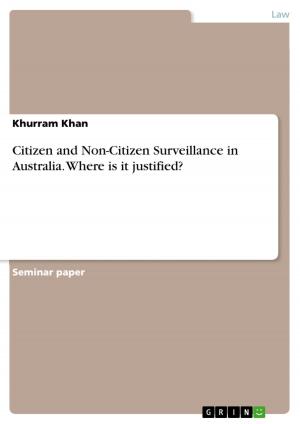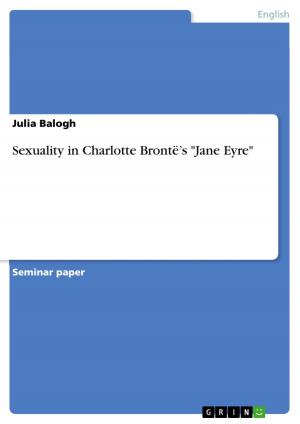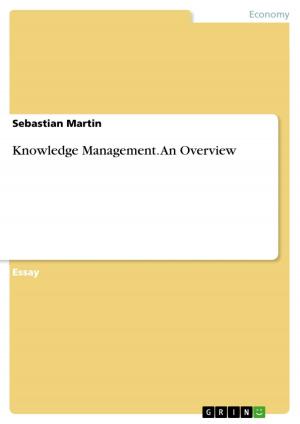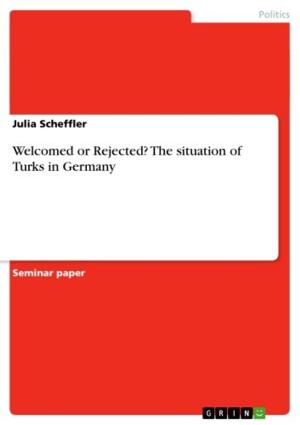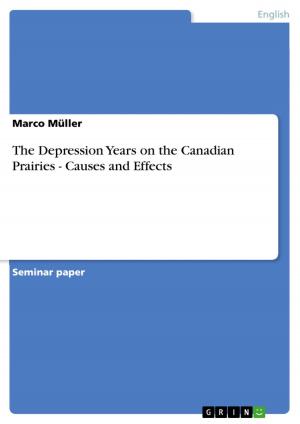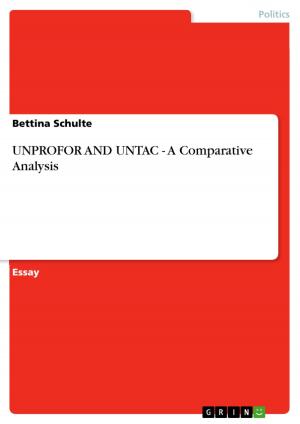The Third Crusade and its impact on England
Nonfiction, Reference & Language, Study Aids, ESL, Foreign Languages| Author: | Maxi Hinze | ISBN: | 9783638612463 |
| Publisher: | GRIN Publishing | Publication: | February 20, 2007 |
| Imprint: | GRIN Publishing | Language: | English |
| Author: | Maxi Hinze |
| ISBN: | 9783638612463 |
| Publisher: | GRIN Publishing |
| Publication: | February 20, 2007 |
| Imprint: | GRIN Publishing |
| Language: | English |
Seminar paper from the year 2007 in the subject English Language and Literature Studies - Culture and Applied Geography, grade: 1,3, University of Potsdam, course: Religious Diversity in Multicultural Britain, 13 entries in the bibliography, language: English, abstract: In 1187, Saladin and his troops defeated the Christians (under King Guy of Lusignan) at the Battle of Hattin and by the end of the year Saladin had taken Acre and Jerusalem. In particular the news of the Fall of Jerusalem aroused immense feelings among Christians in Europe and had still greater reverberations than the Conquest of Jerusalem in 1099. The Papacy reacted immediately to the Fall of Jerusalem by making it a duty for the clergy to preach a new crusade and thus influenced the public opinion significantly. Consequently, no king could evade the duty of going on a crusade in order to recapture the Holy Land from Saladin. Nevertheless, the King of France (Phillip II) and the King of England Henry II (who was succeeded by his son Richard I in 1189) did not show much enthusiasm to go on a crusade at first, as they both feared a foreign invasion during their absence. In contrast to them, the German Emperor, Frederick of Hohenstaufen (also known as Barbarossa), responded to the call for help immediately. He took the cross at Mainz Cathedral at the end of March in 1188 and was the first of the three monarchs to set out for the Holy Land. As public pressure grew, Richard I and Phillip II were urged to renounce their own quarrels and it was finally agreed that they both go on the Third Crusade. After final arrangements were made on the continent, the two kings departed from Vezelay on July 4th 1190 in order to retake the Holy Land from Saladin. After military successes (Fall of Acre and the Battle of Arsuf), Richard I established his headquarters in Jaffa where he believed to be in a good strategic position to launch an attack on Jerusalem. But when Richard I realized that his position in England was threatened by his absence, he offered negotiations to Saladin in order to be able to withdraw soon. On September 2nd 1192, Saladin and Richard I signed the Treaty of Jerusalem and Richard I finally returned to England in 1194. Richard I s decision to go on the Third Crusade led to profound changes within society and affected the English people in various ways.
Seminar paper from the year 2007 in the subject English Language and Literature Studies - Culture and Applied Geography, grade: 1,3, University of Potsdam, course: Religious Diversity in Multicultural Britain, 13 entries in the bibliography, language: English, abstract: In 1187, Saladin and his troops defeated the Christians (under King Guy of Lusignan) at the Battle of Hattin and by the end of the year Saladin had taken Acre and Jerusalem. In particular the news of the Fall of Jerusalem aroused immense feelings among Christians in Europe and had still greater reverberations than the Conquest of Jerusalem in 1099. The Papacy reacted immediately to the Fall of Jerusalem by making it a duty for the clergy to preach a new crusade and thus influenced the public opinion significantly. Consequently, no king could evade the duty of going on a crusade in order to recapture the Holy Land from Saladin. Nevertheless, the King of France (Phillip II) and the King of England Henry II (who was succeeded by his son Richard I in 1189) did not show much enthusiasm to go on a crusade at first, as they both feared a foreign invasion during their absence. In contrast to them, the German Emperor, Frederick of Hohenstaufen (also known as Barbarossa), responded to the call for help immediately. He took the cross at Mainz Cathedral at the end of March in 1188 and was the first of the three monarchs to set out for the Holy Land. As public pressure grew, Richard I and Phillip II were urged to renounce their own quarrels and it was finally agreed that they both go on the Third Crusade. After final arrangements were made on the continent, the two kings departed from Vezelay on July 4th 1190 in order to retake the Holy Land from Saladin. After military successes (Fall of Acre and the Battle of Arsuf), Richard I established his headquarters in Jaffa where he believed to be in a good strategic position to launch an attack on Jerusalem. But when Richard I realized that his position in England was threatened by his absence, he offered negotiations to Saladin in order to be able to withdraw soon. On September 2nd 1192, Saladin and Richard I signed the Treaty of Jerusalem and Richard I finally returned to England in 1194. Richard I s decision to go on the Third Crusade led to profound changes within society and affected the English people in various ways.


